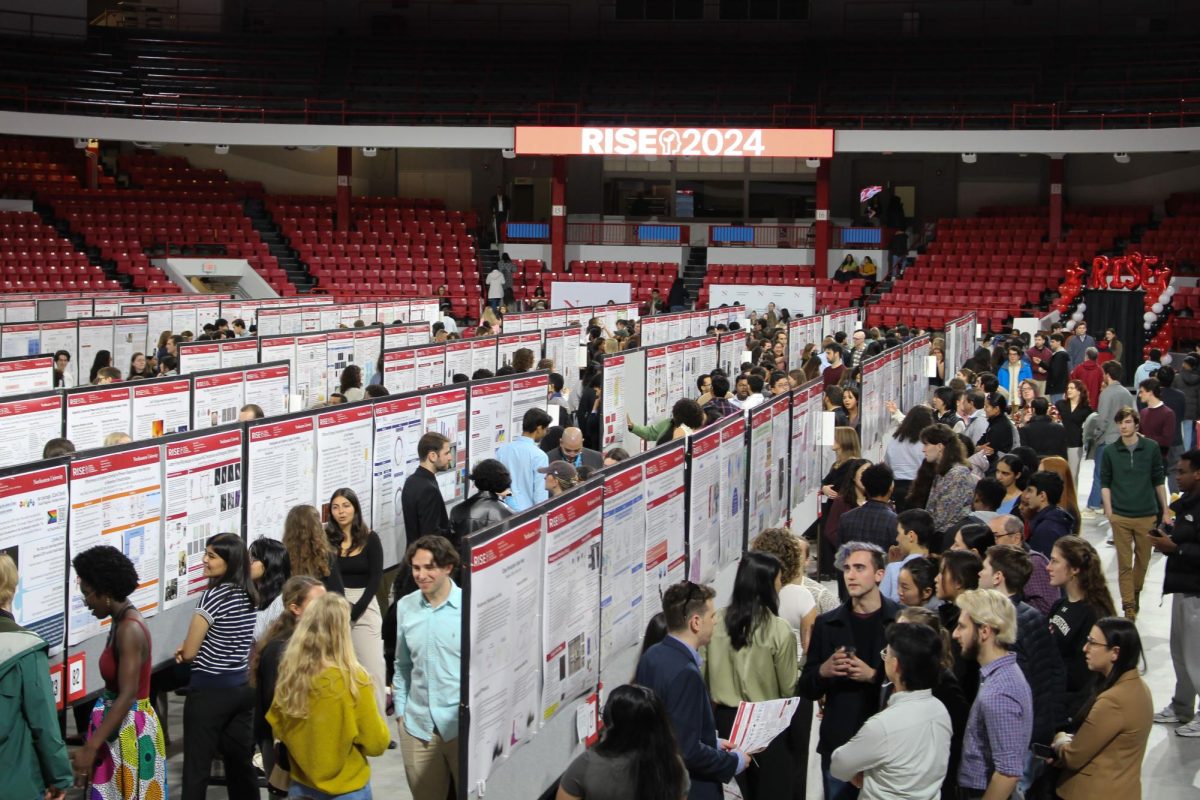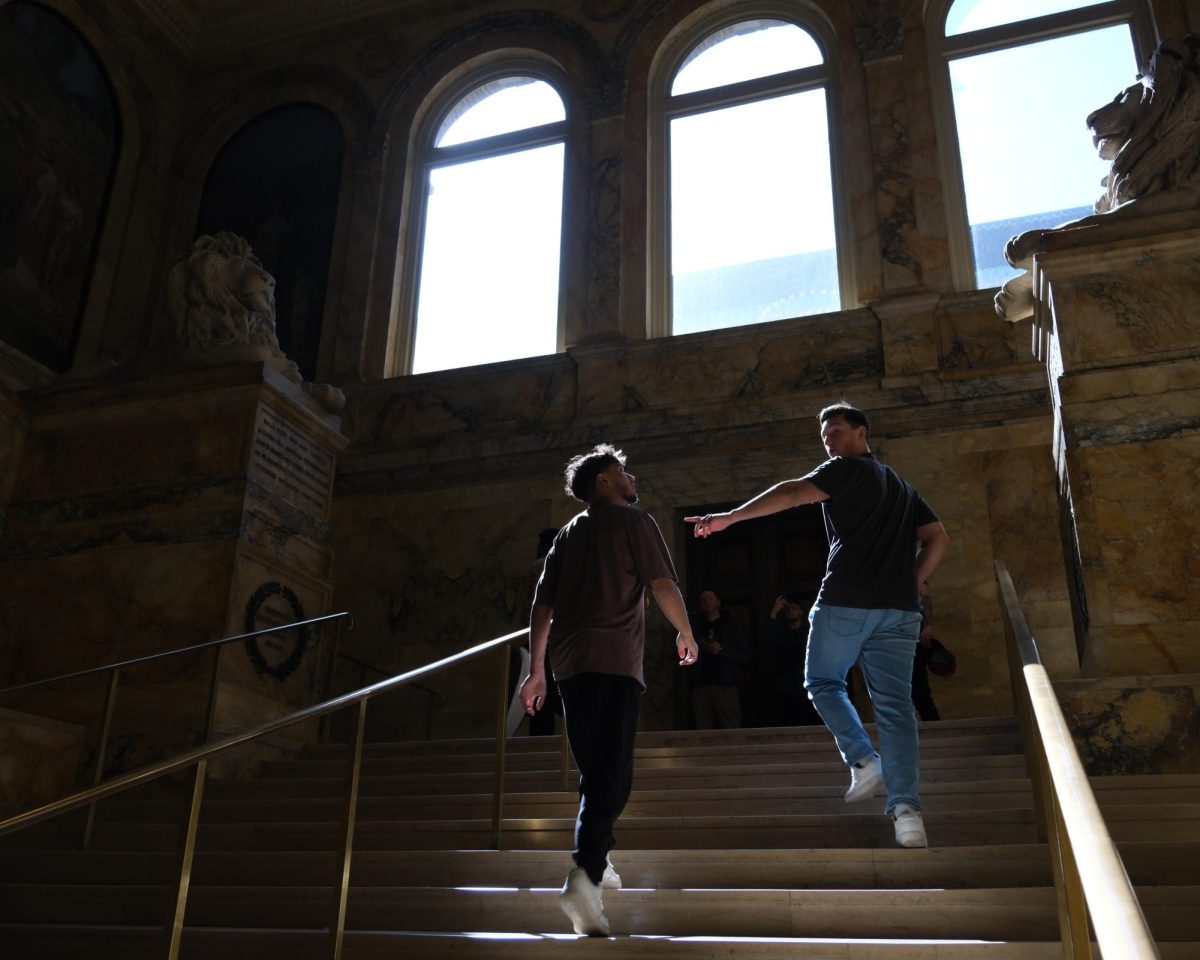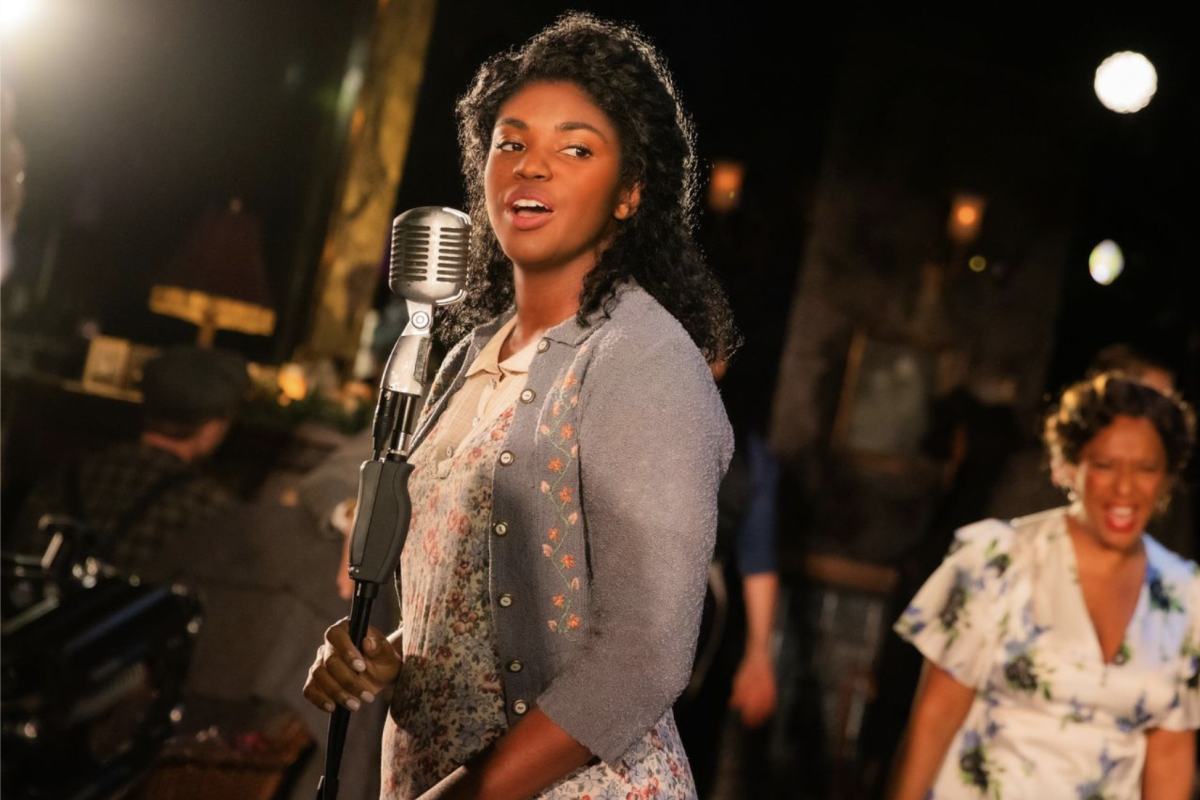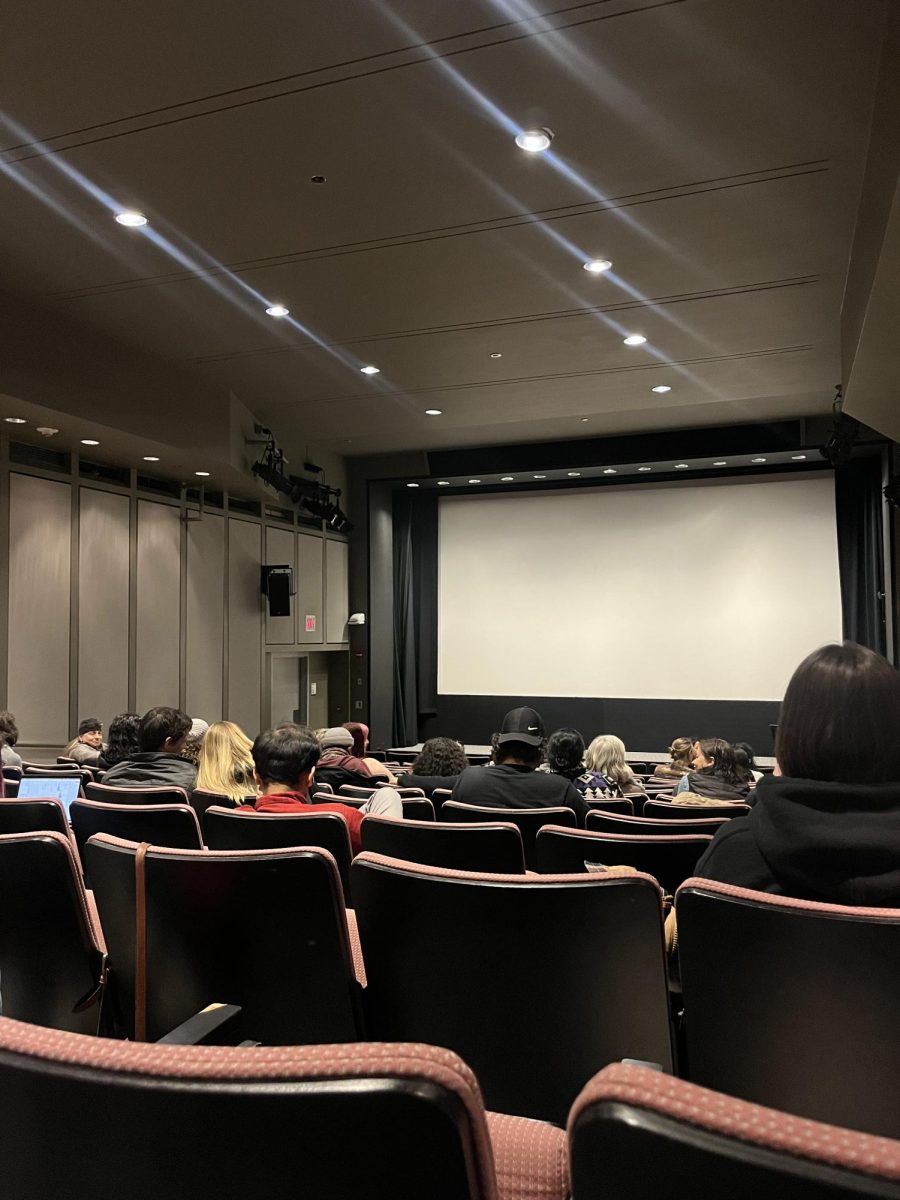By Jamie Ducharme and Jon Palmer, News Staff

A week for funding notification. Four weeks for contract signing. Two weeks to send out bids. This is the schedule for putting together an on-campus show, and those students who help to organize concerts and events have become accustomed to its plodding pace.
The hurry-up-and-wait nature of these processes, which take up the two months usually allotted between an event proposal and the actual day of the show, leaves just a week – if that – for promotion, said James Maniscalco, general manager of campus radio station WRBB.
“WRBB has definitely been criticized for not promoting events,” said Maniscalco, a middler physics major. “A lot of people are not familiar with the event planning process, and even less familiar with Northeastern’s peculiarities in that regard.”
WRBB is not the only group facing this issue. Representatives from Tastemakers Magazine and the Music and Entertainment Industry Student Association (MEISA) said that while there are a variety of sources that hamper advertising efforts, legal procedures the university requires them to follow prove a formidable obstacle when trying to fill a venue. Representatives from all three groups told The News the most damaging part of the process is a Northeastern policy that prevents coordinators from advertising events until Northeastern has signed off on all contracts, which can be as late as hours before the event. They said this policy forces a short promotion time, which results in complaints that they announce shows too late for the student body to hear about them.
Student Government Association (SGA) records as of Jan. 16, the latest available, show $57,840.71 of Student Activity Fee (SAF) money was spent on concerts for WRBB and MEISA this school year. MEISA was allocated $18,679 for other concerts this school year, but the final amount spent was not yet posted. These amounts do not include contributions from other university funds or ticket revenue.
Jason Foster, director of Northeastern’s Office of Campus Activities, said the reason this policy was first put in place was to protect the clubs and the university.
“Originally it was so that we can limit the amount of expenses we’ve incurred regarding an event,” he said. “If a student group spends $500 printing posters for advertising and the artist backs out, that group is out $500 and we don’t have a way to recoup that money. The other component is to make sure we’re allowed to use the band’s photos and likeness in our advertising, and we need the contracts signed to do that.”
Howie Cusack, a booking agent with Natick-based Pretty Polly Productions who works with Council for University Programs (CUP) and Tastemakers to book events at Northeastern, told The News the length of this process makes booking a show more stressful.
“There’s a lot of rules and regulations that are needed to keep an institution of Northeastern’s size running,” he said. “I don’t agree with them, but I have to work with them.”
Cusack said he wasn’t sure why the procedures are in place, but that in what he described as “the infancy of the music business” in the 1970s, it was common for a booking agent to require that tickets couldn’t be sold until a contract was signed. However, he said it is no longer a problem to move forward with a show without a signed contract, as the chances of facing legal repercussions are “pretty minimal.”
Foster, who has held his position since 2008, agreed times have changed.
“I do think that, certainly since the time I’ve been here, there’s been a much bigger advertising push on Twitter and Facebook, so the cost of advertising is coming down,” he said, adding that lowered promotional costs diminish the risk of losing money on advertising should a contract fall through.
Tom Ponsart, MEISA’s live coordinator and a junior music industry major, said issues including the contract process cause some students to miss events and become disappointed.
“I’ve had people comment on Facebook pages for events the day after they happen saying, ‘How did I miss this?’” Ponsart said. “When people ask me why, I explain the complications to them, but I wish more people knew why it was such a last-minute scramble to promote shows.”
Ponsart said that, largely because of this advertising time crunch, MEISA events’ total in-and-out attendance sometimes drops to around 100 people – far below afterHOURS’ 276-person capacity. He explained that since this figure represents the total number of people who came and went during the event, those 100 were not necessarily all present at once, and the crowd was usually much smaller at any given time.
Kyle Risley, former president of Tastemakers and a senior marketing major, said Tastemakers’ events during his tenure were also often well under capacity, sometimes dipping to as low as 75 attendees for a night.
“It’s super frustrating,” Ponsart said. “We put all of this work in, and then the return isn’t what we expected.”
He also said that for some booking agents, who book tours for their artists three to six months in advance, waiting for confirmation from the university is too much of a risk. He said a large part of his duties involves convincing artists’ agents that, despite the frustrating processes, the show will still go through and they should not back out.
Cusack said he doesn’t think university restrictions create much of a problem. Out of the 110 schools that he works with, he said Northeastern has the best students to work with and they always find a way to get word out for shows. He cited “Saturday Night Live” comedian Kenan Thompson’s show Sunday as an example. The event was sold out at Blackman Auditorium, despite delays that gave organizers only one week to promote it.
“You may have a bit of a tempest in a teapot here,” he said. “I don’t know that this is that big an issue. We end up making it work. It’s a bit more stressful, but at the end of the day the shows still seem to go well.”
Risley, however, said he felt the university’s policy of waiting for full contract approval is detrimental to attendance.
“The legal process always, always hurts the student groups,” Risley said. “In two years [as president of Tastemakers] I can count on one hand the number of times that I was happy with the amount of time we had to promote an event.”
He said that the process should be sped up to avoid wasting SAF money, which he said happens when the university “crunches” the time allowed for promotion.
“As a result we have trouble reaching students, and as a result of that, the university’s money isn’t enjoyed by as many people as it could be,” he said.
Maniscalco, the WRBB general manager, said the problem does not concern the SGA Finance Board, which is in charge of allocating the Student Activity Fee. He and Ponsart spoke highly of the board, saying they were helpful in terms of promotion and logistics.
“When we make a proposal [for a new event], we have to note the funding of the last event, as well as the attendance we recorded there,” Ponsart said. “Each time, we ask for the same amount of money, and they ask what happened last time [regarding the low attendance]. Luckily, they have been understanding of the circumstances and they give us the funding.”
Maniscalco suggested the deadlines for SGA event proposals could be moved up to allow more time for the legal process and, as a result, more time for promotion.
Ponsart said he agreed and offered examples of what can happen when proposals are submitted to SGA early: Total in-and-out attendance rose to nearly 400 at both of MEISA’s last two shows, Jan. 11’s Surfer Blood concert and the Jan. 18 3LAU performance, which MEISA had more time to organize.
“We have two weeks to promote [these shows] now, as opposed to three days,” Ponsart said. “They drew [attendance] well because we actually had time to promote them.”
Maniscalco said WRBB found a way to advertise its Sept. 9 Block Party early without breaking university rules in advertising the large show itself without naming the bands, which included Fountains of Wayne.
Even when all goes well with legal, there is a host of other factors that can hinder promotion. Ponsart said Facebook is over-saturated and many people simply ignore invitations. Maniscalco said the process of printing posters and getting them approved and placed by Department of Residential Life can take up to a week, and that is why posters for WRBB’s Sept. 9 Fountains of Wayne show were put up only two days prior to the event.
Risley, Maniscalco and Ponsart all agreed streamlining the contract processes is necessary to improve show promotion. Risley outlined a scenario that would ensure adequate promotion time for all shows in a November email to SGA President Michael Sabo.
“I would support any solution that makes it easy for a student group to advertise as soon as all reasonable doubts regarding the execution of an event have been removed,” Risley wrote. “Once a designee … agrees that there are no reasonable doubts pertaining to the execution of an event and the performance of the artists, an event [should] be advertised to the student body.”
Cusack said the contracts he brings for NU are the same each time, and he would also support an effort to streamline the process of contracts being reviewed.
“What I’d love to do is have a template in place … so that legal wouldn’t have to spend all that time going over the same thing over and over again,” he said. “Why hasn’t it happened? I don’t know. “
Sabo said he is already trying to improve the contract system to prevent legal roadblocks.
“I have been working over the past few months to form a Contracts Committee of students and staff within Campus Activities, FSL [Fraternity and Sorority Life] and legal to work through these issues and increase collaboration and study Northeastern’s contract processes relative to other comparable universities,” he wrote in an email to The News.
Foster said plans are in motion to assess the effectiveness of the project, though he cautioned that it would be premature to discuss further, as nothing has been finalized.
“In regards to the no advertising until a contract is signed, we actually had conversations with legal last week about reviewing that process … discussions of doing it on a case-by-case process,” Foster said. “It’s something we had decided we needed to look at.”
Until progress can be made, though, junior communication studies major and MEISA President Alexandra Bragagnolo said the legal process is so binding groups sometimes have no choice but to disobey official policies.
“Waiting for the contract to get out of Northeastern legal – which takes a very, very long time – is what you’re supposed to do; that’s the rule,” she said. “But we can’t always comply to this rule because if we did we’d be waiting until the day of the event to announce the shows. I’m willing to take the punishment and just put the event up, because it’s unfair.”
Foster said while the reasons the policy was put in place must not be forgotten, the Office of Campus Activities is always interested in helping to make the process quicker.
“I do think it’s time to review that process,” he said.
Though he downplayed the issue of legal restrictions, Cusack said the more time for promotion is always better.
“The system is imperfect, but it works,” he said. “At the end of the day, if a show is strong enough on campus, it’s going to sell tickets. Is [the contract process] detrimental? I guess the answer would be that more time is always better. I would welcome the opportunity to speed up the process, and I don’t know why they [Northeastern officials] don’t want that.”












